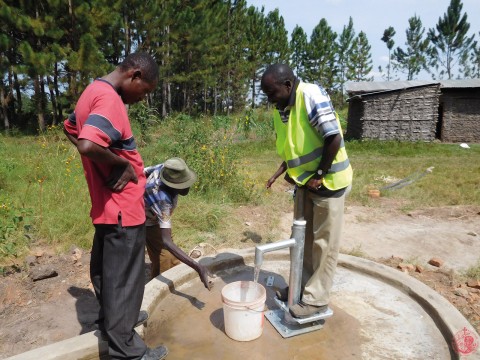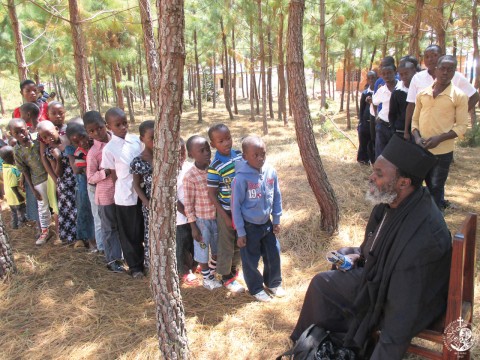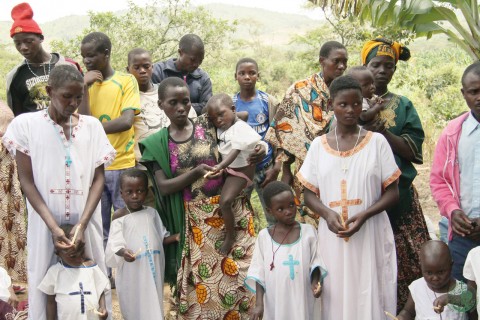Tanzania
Diocese of Mwanza
One of the most significant and difficult achievements of missionary activity is the translation and conveyance of the semantic meanings not only of the sacred texts, but also of the daily prayer practice of the Church into a language which is clear and understood by the newly evangelized peoples or by those who are constantly growing in Christian awareness.
The language was and still is the vehicle through which the knowledge, faith and love for the Creator and Redeemer God can be planted within the human heart, which was called by the Holy Spirit to become a «new creation.»
It is standard practice of the Orthodox Apostolic Church to address those peoples who have not yet met Christ and invite them into the Living and salvaging faith, hiring and utilizing the word shapes of their language, and generally, their linguistic background.

In doing so the Church is confronted with numerous challenges, dilemmas and, many times, deadlocks. The majority of the languages are poor, descriptive, without variety in expression and unable to convey semantic richness and depth; and it is these languages that are invited to become carriers of the message of salvation and deification in Jesus Christ.
It is mainly there that the struggle and anxiety of every missionary venture can be identified, that is to say, how the insurmountable wealth of the ecclesiastical experience can be acquired and become moral principles and life habit in a distant country where the children of God live differently, without negating or betraying the essential features of this experience.
Moreover, if we focus our attention on the space time of the African continent, we will realize with keen concern that along with the dizziness caused by the medley of languages, which are, anyway, tragically poor in terms of expression, another impasse coexists: the relationship of the African people with the book, any kind of book, which ranges from superficial to non-existent.

Therefore, how can the faithful and baptized Christian in Africa be initiated into the great mysteries of the Divine Revelation when there are no books in his mother tongue, or even if there are some, he does not read any? If the only opportunity for him to get the book in his hands and read from it is during the divine worship, it is exactly then that the Church should help him do it. By offering him the sacred texts and readings translated into a language he understands, the Church supports and motivates him to enter the sphere of God’s will.
Countries with large natural wealth but at the same time extremely poor; not in the way the world views poverty, but in terms of ontology and spirituality. Places with hidden «treasures» in their guts, but impoverished in truth and awareness.
There the Church is called to embrace them and being equipped with respect, patience and perseverance, to create favorable sowing conditions of her own precious and priceless treasure in the barren and uncultivated vast continent, to fertilize it and make it able to produce fruit for eternity.

Here comes, once again, the Orthodox Missionary Fraternity from Thessaloniki in order to give presence and actively support the work of the deacons of the Gospel, financing and making reality an impossible dream: the «Masomo ya mitume”. That is the edition of the Apostles’ readings for each day of the ecclesiastical year in the Tanzanian language- Swahili-, according to the order of the Orthodox liturgical tradition. This way, every day a new Apostolic Diamond will enrich the heart and spirit of those living in the land of diamonds. Every day, a spiritual seed will fall on earth, until, one day, the Holy Spirit will transform it into a large tree with strong branches, lush foliage and succulent fruit, which will provide shade, rest and food for many “who labor and are heavy laden». Amen.
† Ieronymos of Mwanza
http://orthodoxmission.org.gr/?p=7395

Δεν υπάρχουν σχόλια:
Δημοσίευση σχολίου